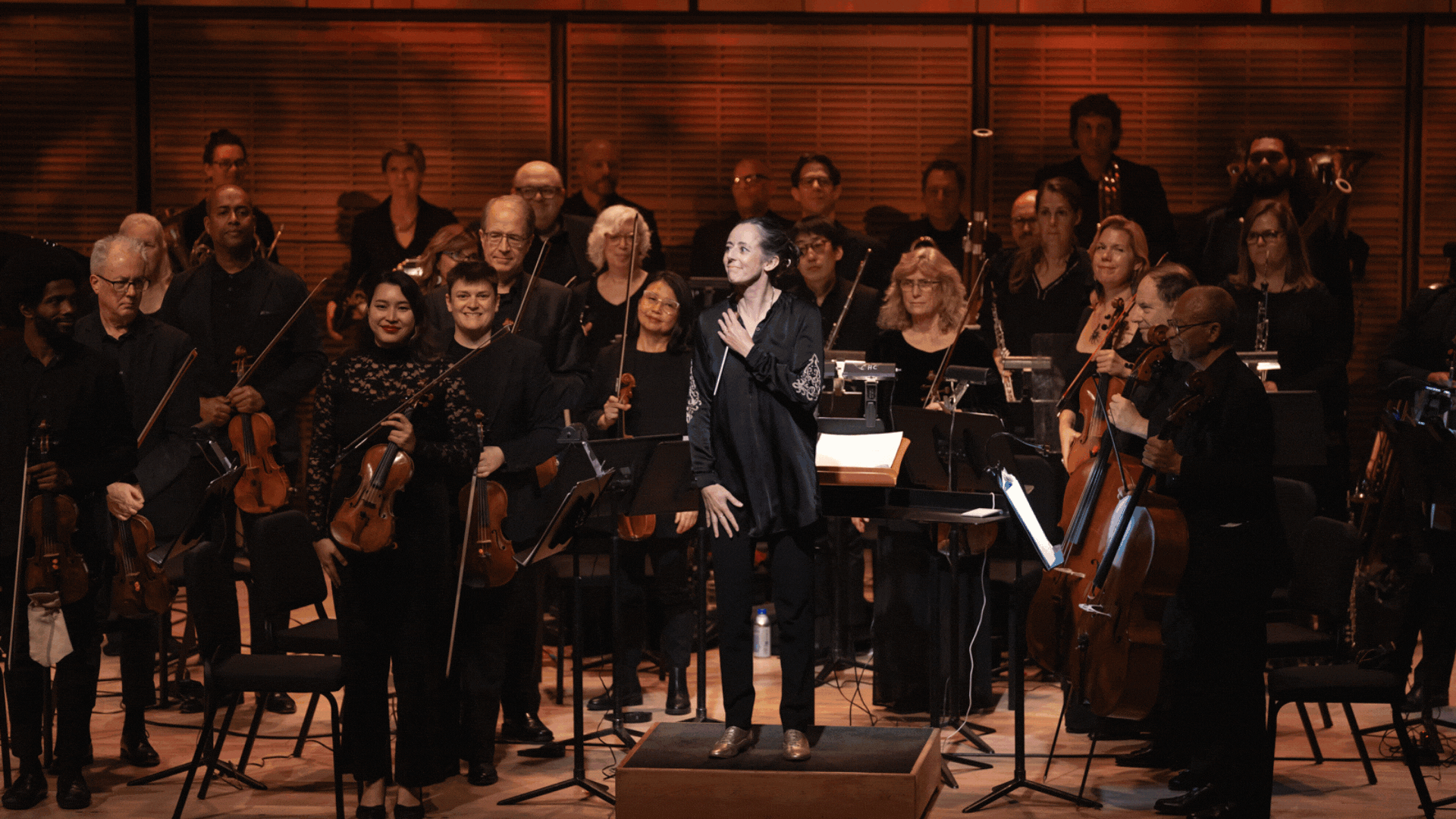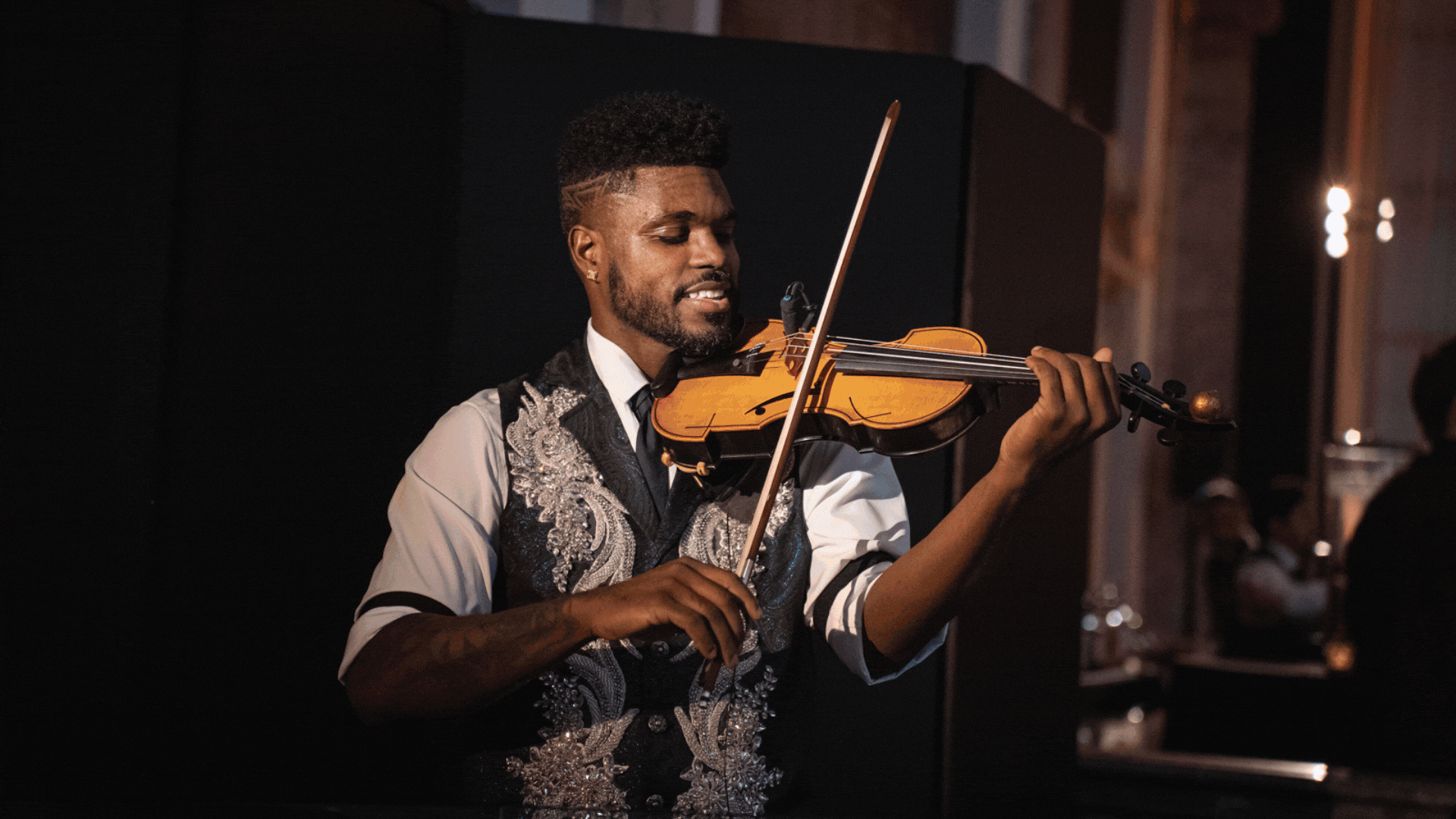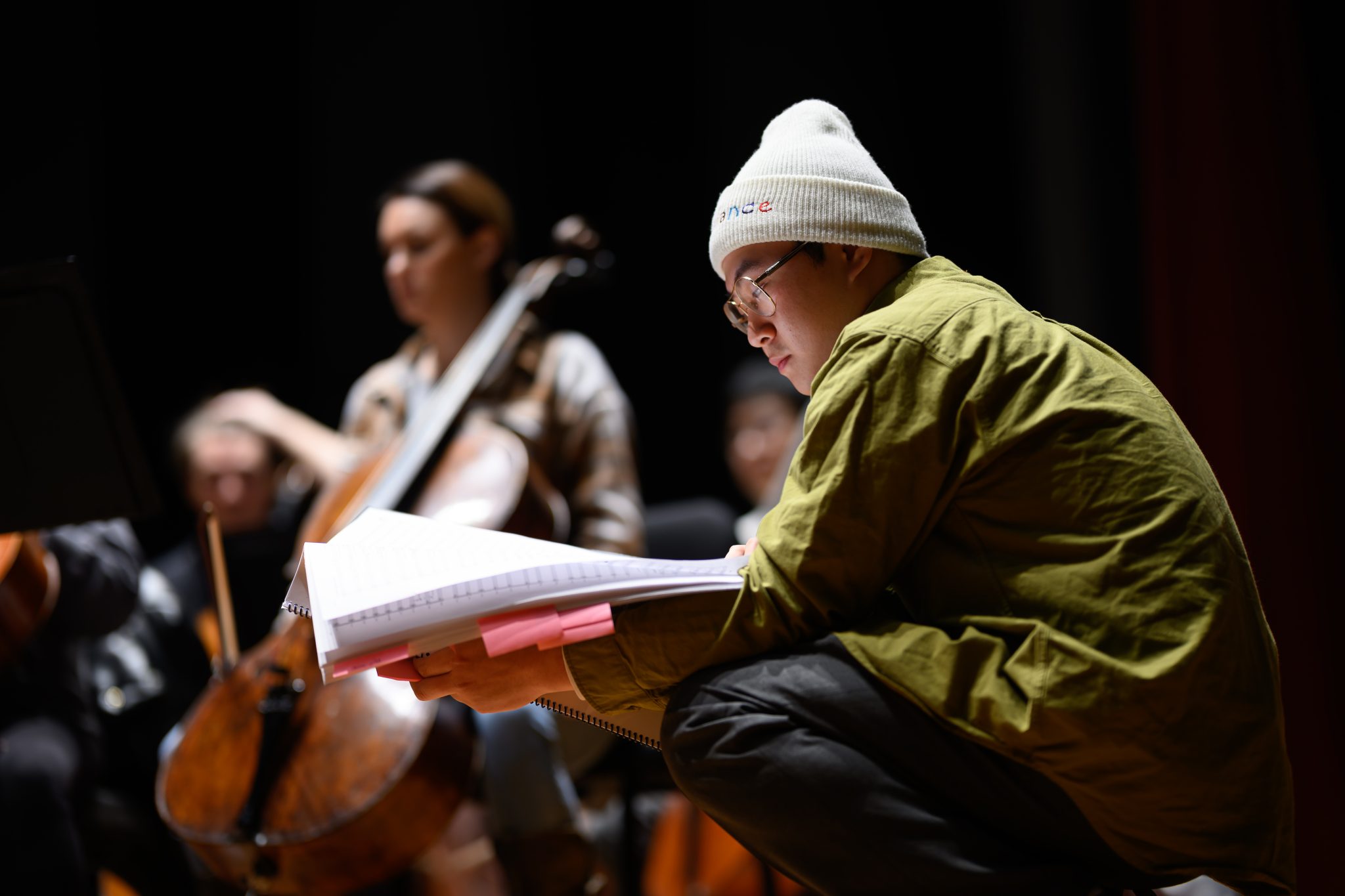Orchestra Underground: Eastern Wind Composer Spotlight - Mehmet Ali Sanlıkol
Mehmet Ali Sanlıkol is a Grammy nominated composer, highly esteemed Jazz musician, and pianist and classical Turkish music singer whose "music is colorful, fanciful, full of rhythmic life, and full of feeling" (The Boston Globe). His Grammy nomination came for his piece Vecd, part of A Far Cry's album Dreams & Prayers, which was nominated for a 2015 Grammy for Best Chamber Music Performance. Mehmet was JAZZIZ’s Top 10 Critics’ Choice 2014 pick and is currently in post-production for a CD release with his unique jazz orchestra/combo, Whatsnext. Recently, Mehmet's piece The Blue Typhoon, written for the Boston Cello Quartet, was performed at the Tanglewood Music Festival on a program directed by Yo-Yo Ma.
The Boston Globe has said "Sanlıkol is a citizen of the world ... another who could play decisive role in music’s future in the world" and it is no doubt that his multiculturalism plays an important role in his music. His ACO and Carnegie Hall commission, Harabat – The Intoxicated, is inspired by the classical Ottoman/Turkish music tradition and will feature a poem by a late 19th/early 20th century Sufi dervish, Edib Harabi. Mehmet will sing and play the dd in the world premiere at Eastern Wind, April 1 at Carnegie Hall's Zankel Hall.
Mehmet was kind enough to answer a few questions about the piece for SoundAdvice.

ComposerMehmet Ali Sanlıkol with his ud
American Composers Orchestra: Tell us how you approached integrating the music of your heritage into a contemporary orchestra setting?
Mehmet AliSanlıkol: Interestingly enough, I discovered the music of my heritage here in the US. Both of myparents are from the island of Cyprus and my mother is a classical piano teacher who was trained by the British when Cyprus was still governed by them. So, when I was growing up in Turkey with my Cypriot parents I was exposed to Chopin, opera and bossa nova much more so than any kind of Turkish music… Then I came to Boston in 1993 to go to Berklee College of Music. At the time Berklee had a very strong Jazz Composition department with Herb Pomeroy still teaching his legendary “Linewriting" and "The Music of Duke Ellington” classes – I was lucky enough to take these two classes from him in his last year right before he retired. In any case, I was fully invested in that world as well as contemporary classical composition until 2000 when I suddenly took a deep interest in Turkish music and culture. At the time, I was just about to begin my doctoral studies in classical composition at New England Conservatory and, thanks to the flexibility of the faculty there, they allowed me to be able to seriously study a variety of Turkish music traditions and go to Harvard in order to learn how to read Ottoman Turkish in Arabic script. My discovery of the Near and the Middle East and it’s multi-layered cultural legacy was not due to melancholy and/or nostalgia but it was purely because of musical reasons. As a result, while studying the traditional musics and learning how to play the ud (as well as a number of other instruments) my musical experimentations began rather early on. Indeed, I found myself studying and experimenting with early European music polyphony and temperaments, the interpretation and attitude of Jazz against written music, and minimalist expressions in contemporary classical music in order to develop an internalized voice as a contemporary composer that was not necessarily looking to integrate Turkish music into an orchestral setting, but was all about truly reflecting on my own “Turkish-American” modernity.
ACO: Harabat – The Intoxicated features a poem by late 19th/early 20th century Sufi dervish, Edib Harabi, which you will sing while playing the Ud. Can you talk about why you chose this text in particular?

Sufi dervish Edib HarabiMAS: First of all, for such a special commission I really wanted to compose a piece that had important things to say on a number of levels and I found that Sufism often helps me ground myself better, at least, culturally and spiritually. The type of Sufism (Islamic mysticism) Bektashi dervishes practice is the one that I identify with the most and, Edip Harabi happens to be one of my favorite Bektashi Sufi poets. So, as soon as I received this commission I wanted to look into Bektashi Sufi poetry and Harabi came up rather quickly. I also had a particular aesthetic in mind for the text as I wanted it to have the kind of meter which Ottoman classical poetry used. As a result, I read through a collection of Harabi’s poetry for about a month and found one that I really liked which was in the kind of meter I was looking for. On a spiritual level, the text I selected reflects on the idea of falling under the spell of (what I call) "divine intoxication." The word harab literally means to be devastated. So, harabat would then translate as "the devastated," however, what the author is referring to here is appearing devastated to the public due to being intoxicated with divine love. In fact, Harabi is masterfully creating an analogy here with being heavily drunk from liquor – intoxicated – and appearing devastated as a result. In the end, since he is a dervish, a man of religion, he picks on the religious orthodoxy and says that to the imam he may appear “intoxicated” but how can the imam understand the kind of pleasure giving up the material world brings…
ACO: Your background spans Western classical music, Jazz and Turkish music. Have you found connections between these three musical spheres, and if so, do these connections find their way into your piece?
MAS: As I noted earlier, I discovered that early European music and classical Turkish music have a lot in common. On the other hand, the improvisational nature of Jazz and classical Turkish music also present commonalities. All of that being said, simply discovering or learning about commonalities between musical traditions do not necessarily mean that a composer can suddenly begin to express these subtleties. Surely, it is a different matter if the composer is only looking to be inspired by a particular musical tradition. However, in my honest opinion, in order for a complex musical expression incorporating a number of musical languages to emerge, the composer must internalize the musical languages with which he/she is working with. After two decades spent studying, performing and composing Jazz, classical Turkish music, early European music and contemporary Western classical composition, I am hoping that inHarabat – The Intoxicatedall of these musical languages will be heard in a fashion where they do not necessarily coexist but they are intertwined.
Watch the teaser for Mehmet's upcoming Jazz album with his Jazz ensemble Whatsnext?:
ACO: You will be singing and playing the Ud in Harabat / The Intoxicated. Does either your singing or the Ud take melodic responsibility in the piece, or do they coexist as the solo lead?
MAS: My voice is really the solo lead with the ud supporting it which is directly modeled after the kind of singing that occurs in the classical Turkish music tradition. In this tradition it is common to find the ud or the tanbur (long-necked lute) performed by the singer. And, if the performer is a male singer then the instrument and the voice end up being in the same octave. As a result, the instrument provides support as well as attack and rhythm due to the plucked nature of it.
Watch Mehmet perform a Sufi song notated in 17th century:
ACO: What are you looking forward to about the performance of Harabat / The Intoxicated at Carnegie Hall by the American Composers Orchestra?
MAS: I poured my heart and soul into this piece as I wanted to fully reflect on the “divine intoxication” that got a hold of me several decades ago in Bursa, Turkey. However, only a few weeks after I started composingHarabat – The IntoxicatedI lost my father due to a sudden and a completely unexpected heart attack. Iknow that the tragedy of this loss is deeply buried inside this piece too. As a result, I am looking forward to celebrating my father’s life by performing this piece at Carnegie Hall with ACO.
Hear the world premiere of Mehmet's Harabat – The Intoxicated at Orchestra Underground: Eastern Wind - April 1, 2016 at 7:30pm at Carnegie Hall's Zankel. More details and tickets here.
Learn more about Mehmet, is Jazz outfit Whatsnext, and all his endeavors at his website www.sanlikol.com
Follow ACO on Facebook, Twitter, Instagram, Soundcloud, YouTube
www.americancomposers.org
Corporate gifts to match employee contributions are made by Goldman Sachs, Deutsche Bank, Triton Container International Incorporated of North America, and Neiman Marcus.
Public funds are provided by the New York City Department of Cultural Affairs in partnership with the City Council, and the New York State Council on the Arts with the support of Governor Kathy Hochul and the New York State Legislature, Office of Brooklyn Borough President Reynoso, and the National Endowment for the Arts.






